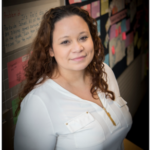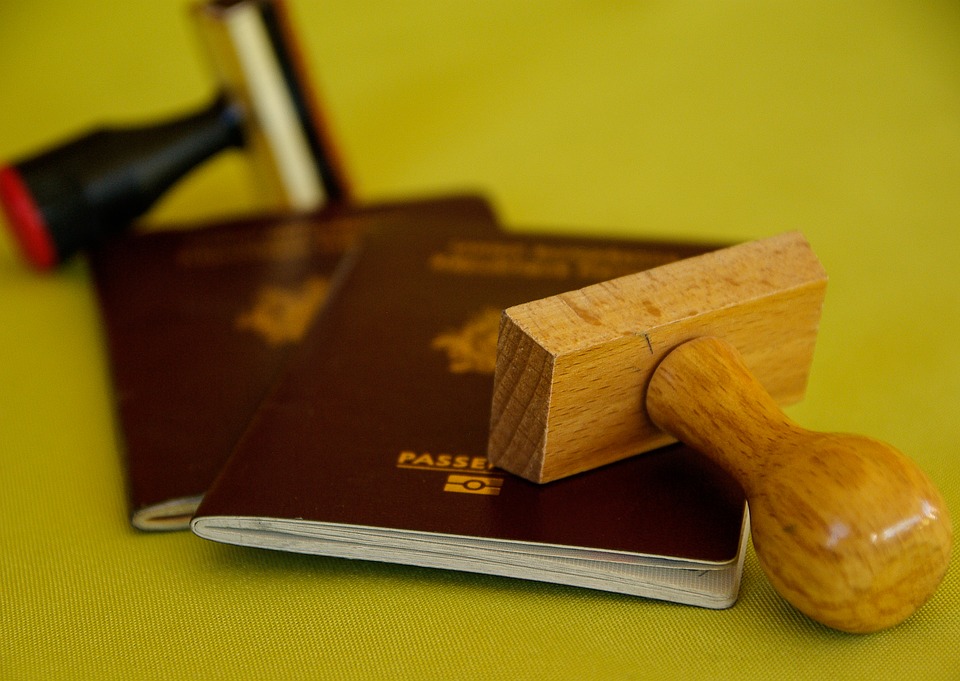First time I heard the question, y porqué el? Not just romantic wonderment, but a trial. Why he, a string of accusations tucked into two words. Why an immigrant? Why someone with an accent? Why not an American like you? And from the first person to the last person to ever ask, one thing became clear; they felt an immigrant was beneath me. Though they themselves were immigrants, an irony lost to them. Unable to respond to their indictments, this is my attempt to set the record straight. And, dig through the shame others have cast on me for being married to an immigrant. And why I allowed it.
****
Gabriel and Sophia and I were all on extended vacations in Colombia, but for different reasons. Gabriel was in Colombia the longest of us three; neck deep in legal trouble in Nueva York, the distance was his acquittal. Then me, already in Colombia a few months, a broken heart run away, but now on the mend. Sophia, in Colombia to visit me for two weeks, extended her stay, and now six weeks had elapsed. We negotiated not just miles, but time, as we kept our hurt at length too. Together we stuck out and ducked the insults of gringos hurled our way, to which my body shrugged off and answered, but I am Colombiana. But, my mind lingered over every gringa heaved my way, and though it was the opposite of spic chucked at me in America, the welt it left was no different.
It had been my idea to go out drinking early that day. Upset by my phone call with Mami that morning, I sought refuge in my friends and in el trago not unlike Papi. We began the day with shots of aguardiente, followed by beer, and whiskey afterward. Once wrapped in the fuzzy blanket of alcohol, I doled out bits of my conversation with Mami to Gabriel and Sophia. Now several months since I arrived in Colombia, Mami who came with me those first few weeks, was already back in Nueva York. I began to date Ruben soon after Mami left. At the time I saw that fact as insignificant, but I suspect I waited, like always I feared Mami’s disapproval. Colombia was to be the elixir to my recent mental unravel, a result of that broken heart I mentioned. I was not there to buscar novio, but to reflect, and come back with a new attitude. A month after her departure, news that I dated Ruben made it back to Mami.
When I called Mami and told her I was in love. She scoffed and refused to say his name, referred to him as an enano. As I recounted the conversation to Gabriel and Sophia, I wailed the word enano, and took a swig. Because behind Mami’s insult of Ruben’s five foot and six-inch frame, were so many words left unsaid.
Only years later have I pieced together what was underneath the word: enano. Mami often showed my sister, Joann, and I her ropey and dry hands, the effect from years of hard work. House after house cleaned for meager bits of money, heavy bags of clothes carried and sold to friends, their friends, and neighbors, all to pay for years of Catholic school. A sacrifice Mami could bare if Joann and I did not end up with the fate she was allotted. The words ese enano, meant will he protect you, can he provide? But, at the time all I saw was what she didn’t see. Ruben made me laugh and feel safe. Her insinuations rang in my head, and I drank to forget.
Drunk before late afternoon, desperate to sober up, I convinced Gabriel and Sophia to get a cheap motel room in el centro de Barranquilla so I could sleep it off. The room spun as I turned towards Sophia. She was next to Gabriel. Their slack drunk faces looked almost sober to my sloppy and sick.
“I need to lay down,” I whispered. My eyes heavy, I sunk into the cheap plastic mattress.
Sometime after, I felt Gabriel’s hot breath near my face.
“Let’s make out,” Gabriel said. Stretched beside me, Gabriel inched closer, his head propped up in his hand.
“What? No.” I lifted my head to look for Sophia. I noticed the bathroom lights on.
“Why?” Gabriel shook his head.
“I’m with Ruben…” I lifted myself up. Heavy and under the fog of alcohol details clumped my mind as it forced itself to make sense of what unfolded before me. Gabriel messed around with one of my childhood friends from all my summers spent in Colombia, D. She lived next door to Abuelo’s. Homesick, Gabriel and I sat together for hours, filling up the loneliness in our hearts with the words from back home.
“That inmigrante,” Gabriel said “inmigrante” the way the real gringos back home spoke Spanish. He sat up. Laughed. “Are you serious, you into that guy?”
I stared at Gabriel for a long time before I spoke. Searched his eyes to see if I could find the exact moment that Gabriel forgot that he himself was immigrant. That Colombia was his place of birth, and permanent residence till he was seven years old and moved to Nueva York.
“Yeah?” Gabriel said.
I took note of his English. Gabriel was the lucky ones, arrived in America right before that corner of the brain, which holds language is wide and open, not closed and arrested by an accent. “I’m with him,” I repeated myself. Despite the layers of drunk that numbed my body, my face grew hot, and my heart constricted.
“Oh, so it’s like that?” Gabriel nodded his head. “Alright fuck you bitch and your inmigrante.” He stood up knocked on the bathroom, called out to Sophia. “I’m going to get us some sodas. I will be back in a few.”
I watched him walk out. Words clogged my throat, as I said nothing.
That day Mami and Gabriel reflected how others would see me beside the man I fell in love with. Those early months in Colombia, many mirrored glimpses of that first reflection. My oldest male cousin through Papi’s side tried to rally other cousins to circle Ruben, and remind him with their fists he was not for me. After all, yo tenia un grado y naci en los Estatodo Unidos. While everyone worried about what was best for me, I remained silent, unable to explain that I was only Americana in their Colombian eyes. But, in America I was just a check mark next to the word Latino. Called American only, when hyphenated to Colombian.
Once in America, certain that los blancos would render the same verdict, I braced myself. I was wrong. Never a word, or a trail of question about why him. No, facial implications to confirm the possible thought. Perhaps they saw me as a diluted version of an immigrant, little difference between the two. Therefore, our union did not cause a crack in the caste system Latinos have erected for themselves in response to how we are seen. And, while los verdaderos gringos are complicit, the anguish to my psyche is not as great, as the one by mi propia gente.
Together for many years now, I have grown accustomed to the quizzical eyebrow, the blunt how did you two meet on the brim of lips, and surprised folds of many foreheads. But. If indeed I am to set the record straight, and explain why I never built an arsenal of retorts. The answer is simple, part of me agreed. Not, that my husband is beneath me, but that immigrants are less than. That I, the daughter of Colombian immigrants am less than. The evidence is how I lived my existence once I realized there were Americans, then others, and then foreign others. Desperate to remove myself from that status daughter of foreign other, I read the way people gulp air, to stay alive and atone for my parents’ criminal charge of immigrant. As if an endless list of books could pardon my life sentence for being born to immigrants.
Forced to see, I too hold the mirror held up by so many. My head bowed, as the truth of my own shame crushes me, and I realize how adept I’ve become at watching others see if they hear my husband’s accented English. How my habit is to switch to Spanish, and how long I lied to myself that this was an act of pride for the language. A ruse created by the part of my consciousness, which held onto the hot shame since the first time I stood next to Mami, and was asked with great disgust if she spoke English.
Ready for change. I shifted my perception, and from where I now stood my husband’s accent was evidence of his strength. A year of ESL classes he took late at night at the local community college after work. Train rides to and from work, reading my favorite chapter books from my classroom in order to acquire vocabulary. All the hours spent watching sitcoms to understand lame jokes and tired sayings. News shows watched in order to accumulate an understanding of American current events. English, more than just a language to communicate in his new country, but another pair of arms he could wrap around me.
Unable to undo the past. But, able to forgive Mami, Gabriel, my cousin, and the long list of many that shoved their, porqué el, in my face. Hurt, but made strong by their false charges, I not only stand by my husband but my own self. A daughter of immigrants, not at all diluted, but proud. As I described the self-hate of others, I saw my own self-hate reflected back. And, I remembered the past: laid across my bed late at night, my own list of accusations grew, why my parents couldn’t speak English or have a car, or serve dinner foods like meatloaf and casseroles. Then as quick as I thought it, guilt crawled up my spine, and I withered in shame.
Brene Brown says the antidote for shame is compassion. Well, this is more than a record set straight. A love letter was written for the little girl I once was, who grew up to believe that immigrants were less than. But, now I know that was never the case.
******************************************************************************************************************
 Connie is a Colombian-American writer. New York City educator, mother of a teenaged daughter and middle school-aged son. Currently, working on a semi-autobiographical YA novel. Documenting her life on blog, Conniepertuzmeza.wordpress.com, participating in the #52essays2017 challenge, staff writer for Hispanedotes.com, a monthly online literary magazine. Published essay by La Pluma y La Tinta, the latest anthology titled, Penate.
Connie is a Colombian-American writer. New York City educator, mother of a teenaged daughter and middle school-aged son. Currently, working on a semi-autobiographical YA novel. Documenting her life on blog, Conniepertuzmeza.wordpress.com, participating in the #52essays2017 challenge, staff writer for Hispanedotes.com, a monthly online literary magazine. Published essay by La Pluma y La Tinta, the latest anthology titled, Penate.
A two time VONA Alum (2015 and 2017), participated in Christina Garcia’s Las Dos Brujas (2017). Studied with Salvatore Scibona through the Cullman Writing Scholars Institute (2017). Member of M. Colleen Cruz writing group for teachers that write based in Brooklyn since 2004.
 Wendy Angulo Productions
Wendy Angulo Productions




